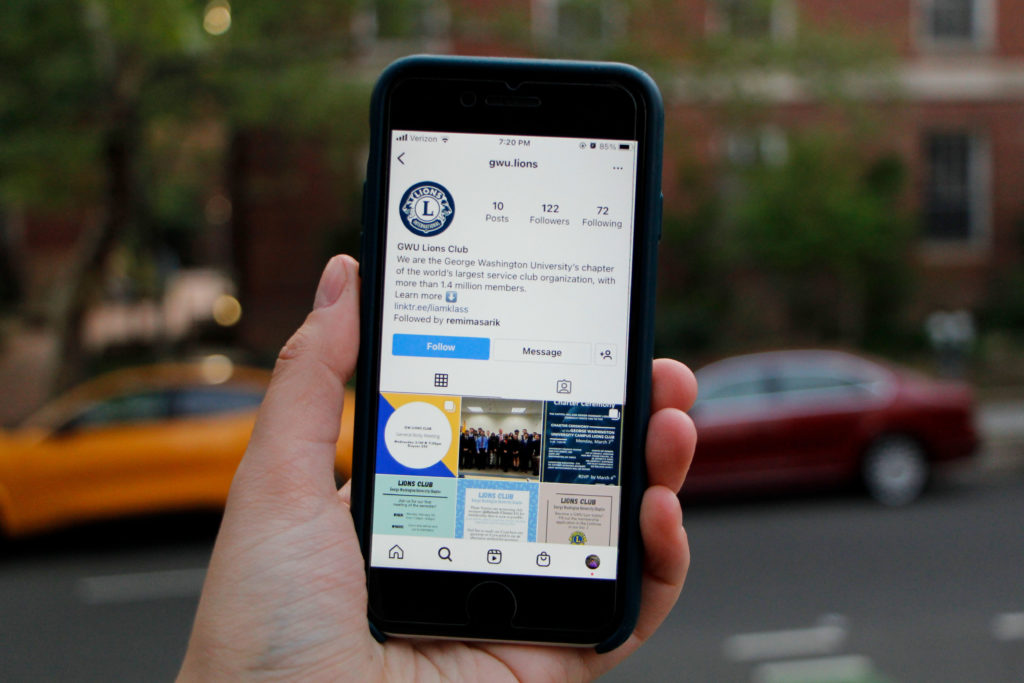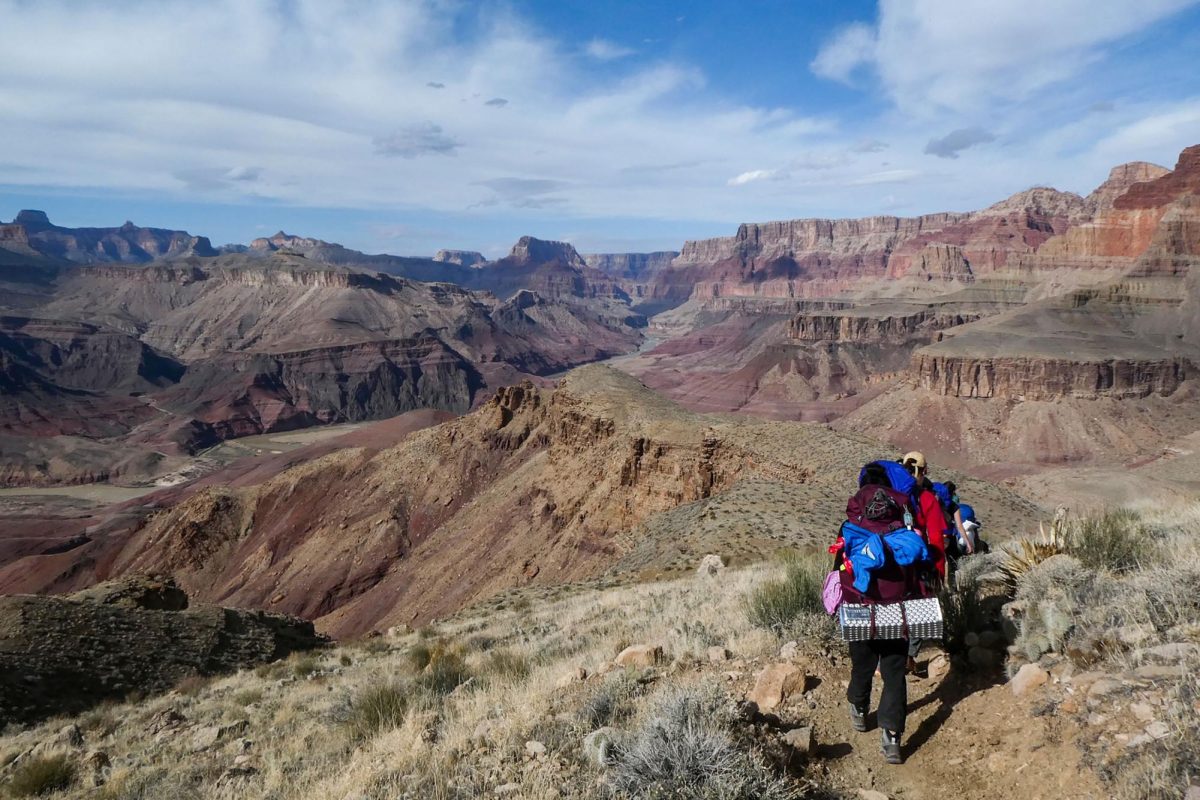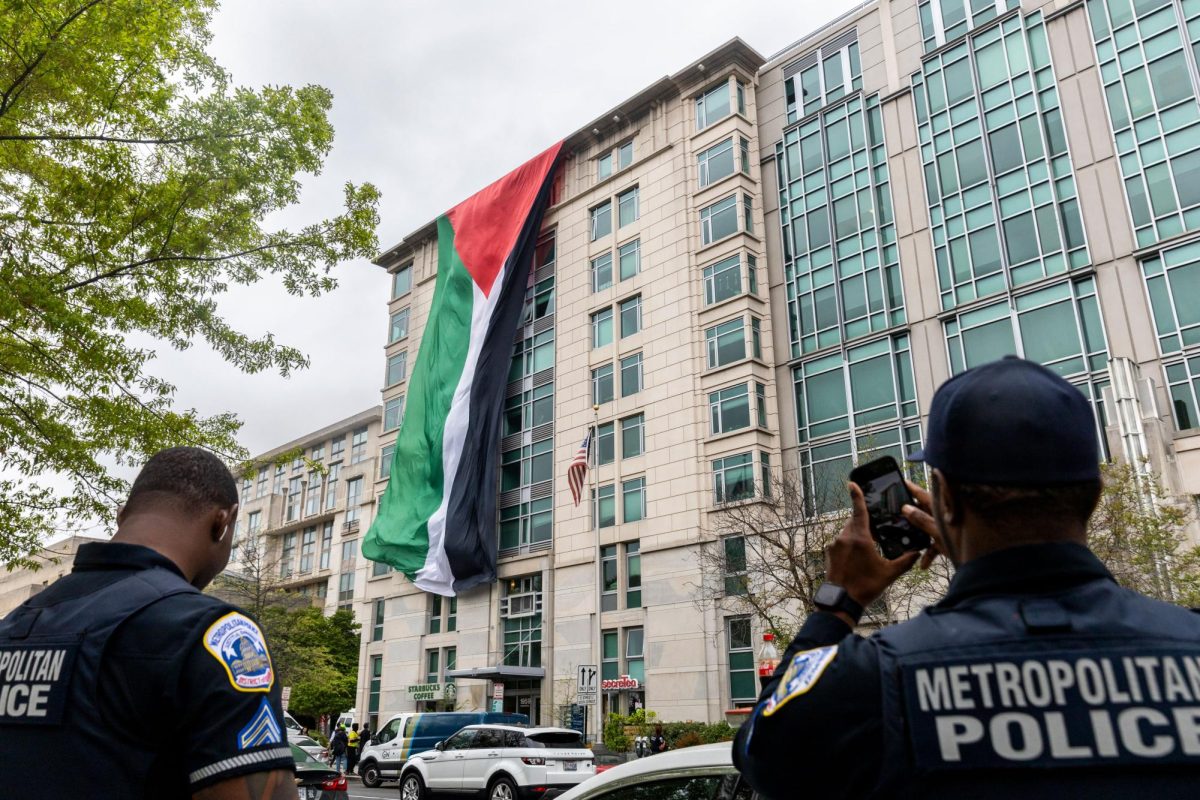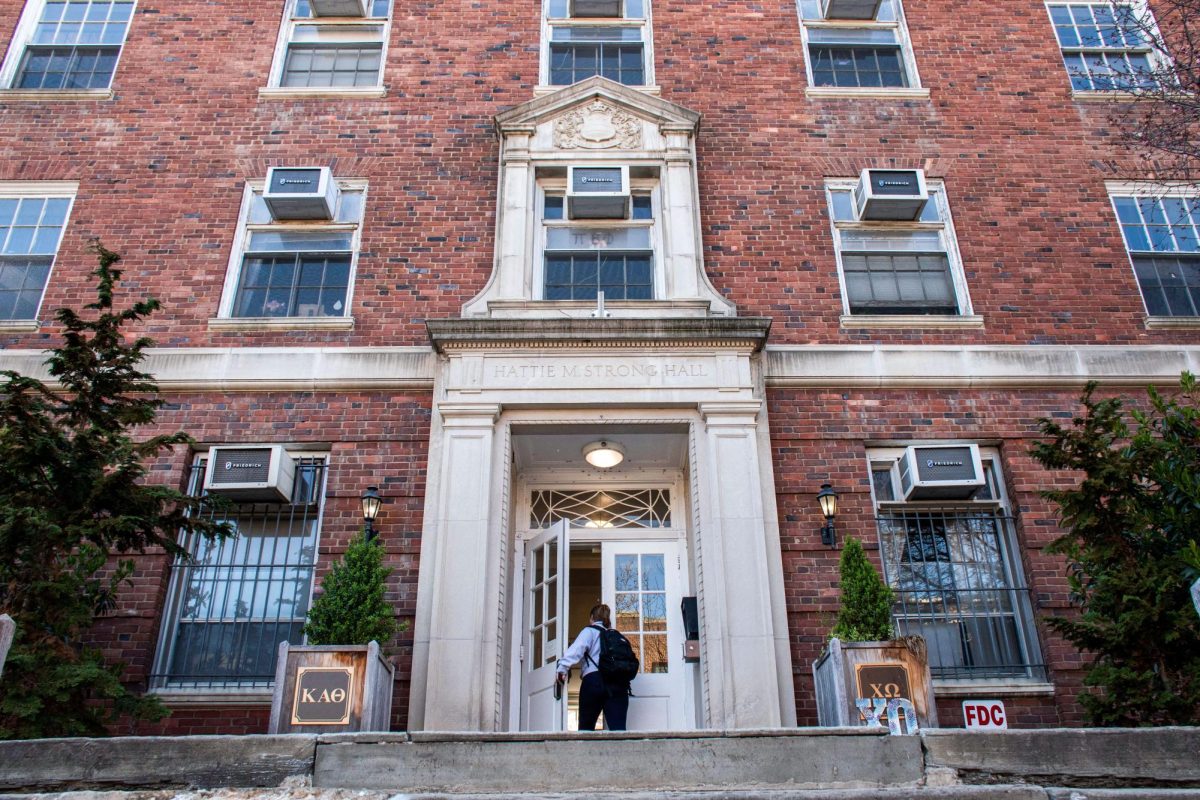An international service organization focused on civic engagement and professional development founded a GW chapter this spring, one of more than 46,000 chapters worldwide.
The GWU Lions Club, which was chartered as an official student organization in February, hopes to make use of global connections for planning service projects to advance the welfare of the D.C. community through projects like fundraising for the surrounding unhoused population. Lions Clubs International – the global leader of chapters across the globe – works to aid hunger, vision, diabetes, childhood cancer and the environment through their service.
Other local Lions chapters will provide funding for the GW chapter’s activities fund, publicity for GWU Lions Club projects. They will also offer exclusive opportunities for GWU Lions like offering access to equipment for service projects, including an upcoming partnership that will provide the GW chapter with a machine to sort through donated eyeglasses to aid District residents living with vision disabilities.
GWU Lions Club members said they plan to contribute their own funding to Lions Club International to donate to its Displaced Persons Fund to support Afghan and Ukrainian refugees.
Arun Nimmagadda, a freshman and GW Lions’ co-vice president, said the organization is looking forward to upcoming service projects, like a plastic bag drive meant to create “plarn” – yarn made from recycled plastic – to provide sustainable blankets for the District’s unhoused population. He said the organization is “continuously growing” and the impact of giving back to the community through Lions Club service stays with members their whole lives.
“So it’s something that sticks with you for most of your life, that idea of helping those around you and developing as a professional continuously and giving back to the community with civic engagement,” Nimmagadda said.
Lions International was founded in 1917 and has since served more than 200 countries with more than 1.4 million members globally.
Nimmagadda said he was involved with a local youth chapter of Lions International in high school, which helped him connect with other GWU Lions Club founders who had also participated in other youth chapters before collaborating to bring the new chapter to campus. He said his experience as a Lion has taught him a sense of “self-advocacy” because it offers each member a chance to launch their own service projects and have a say in organization decisions.
“It was something that my parents were involved in when they were younger, something that I grew up around,” Nimmagadda said. “It created such a monumental impact on me both professionally, with public speaking and things like that, but also community-wise in giving back to our community in ways that we can.”
Ojas Chitnis, a freshman and president of GWU Lions Club, said the Lions’ constitutional bylaws state that the organization must invest 100% of their funding for public causes and service projects, a policy he says the group’s organizers are proud of.
“The international resources that we collect from all Lions Clubs are all mobilized for local issues, whereas traditional service groups fundraise and collect locally to mobilize international issues,” he said.
Chitnis said the club’s ability to utilize international resources and connections from chapters around the world, through fundraising or service opportunities like volunteering at a baseball game in support of those with vision loss, is what sets them apart from other student organizations.
“While there is some similarity, some overlap, we believe that the opportunities provided by the Lions Club – with the international resources, the mentorship, the access to grants and funding to do more projects – we believe that makes us all unique,” Chitnis said.
Chitnis said the District hosts eight other Lions Clubs in surrounding universities and local neighborhoods. He said members hope to interact with other university and regional chapters like Howard University Lions Club and the New York Financial District Lions Club — which GWU Lions Club plans to partner with for an event with a blind baseball team next semester.
He said the club’s organizers hope to attract more members beyond the 24 current members to join GWU Lions Club next semester since many people are eager to take part in community service.
“In working with other clubs who focus on other needs, we find more avenues to become engaged,” he said. “Bringing all these interests together on campus is how we plan to grow our own club. Community service is a thing people want to take part in, and with all the added benefits we believe our organization will make an impact when we come back to campus next semester.”
Liam Klass, a freshman and GWU Lions Club co-vice president, said he and other organizers saw a need for a service organization in the Foggy Bottom neighborhood because of its large unhoused population in encampments like the corner of E and 21st Street.
“Walking around just Foggy Bottom in general and seeing all of the homelessness and people in need, it really touches me from an emotional standpoint and gives me that initiative to create change and that drive to seek action,” Klass said. “Seeing that all happen and seeing the privilege we have in Foggy Bottom, it’s almost like it is a bubble, I knew immediately that I just want to do something.”
Klass said it can be “eye-opening” for GW students to realize their privilege and should use it to help the surrounding communities and elicit change.
“All of us can just continue to live our student lives, continue an out-of-sight, out-of-mind mindset and not worry about anything that’s happening outside of Foggy Bottom,” Klass said. “To provide an opportunity for hands-on work to help people right outside our front doors, and to provide an opportunity for others to do the same, it seemed almost obvious that this needed to happen.”








